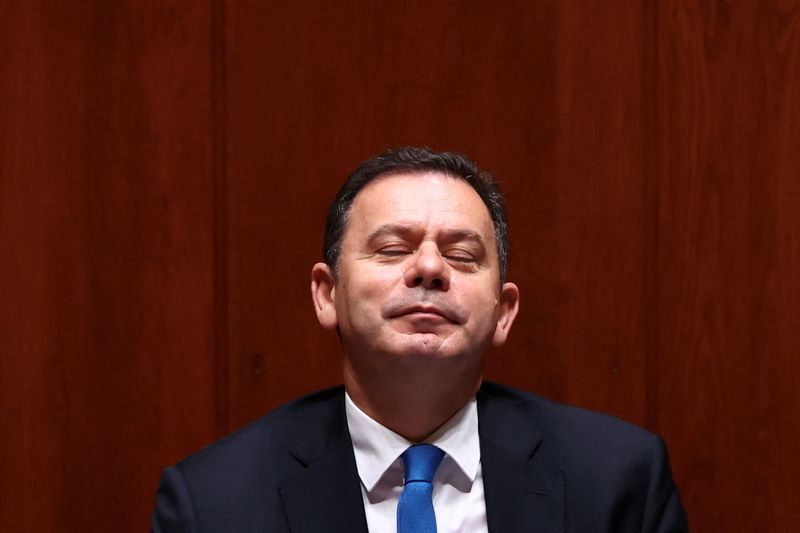By Sergio Goncalves and Patricia Vicente Rua
LISBON (Reuters) - Portugal's parliament on Friday gave final approval to the centre-right minority government's 2025 budget bill, which promises to lift growth and generate a small surplus despite tax cuts for youths and businesses and hikes in wages and pensions.
The bill passed with only 80 votes in favour from the alliance that supports the government because the Socialist Party, which has 78 seats in parliament, abstained, as it did in the previous reading of the bill.
The remaining 72 lawmakers, including those from the far-right Chega, voted against.
The vote represents some relief for the minority government, which many analysts had expected to struggle to survive after it took over in April, raising the prospect of a third snap election in as many years.
The leader of the Socialists in parliament, Alexandra Leitão, said that her party's abstention, allowing the budget to pass, was purely to avoid a fresh political crisis.
She said the government should now "put an end to excuses, diversionary manoeuvres and victimisation", referring to its complaints of being blocked from legislating by the opposition.
The leader of Chega, Andre Ventura, said the Socialists were now "the crutch" of the Social Democrat-led government, accusing both parties of collusion and "not caring about the fight against corruption".
Before the vote, Chega unfurled banners down the facade of the parliamentary building in which it denounced the increase of politicians' wages in the budget as shameful.
The complaint refers to the reversal of a 5% salary cut imposed in 2010, a year before Portugal received a bailout. The banners were later removed by order of the president of parliament.
The budget expects economic growth to pick-up slightly to 2.1% in 2025.
It aims for a surplus of 0.3% of GDP next year, despite the majority of young people having a total exemption from paying personal income tax and reducing the general corporate tax to 20% from 21% now.

Infrastructure Minister Miguel Pinto Luz said that the margin available for more fiscal stimulus "is conditioned by the need to keep the public accounts balance and public debt on a downward path".
Public servants will have salary hikes between 2.15% and 6.9% next year and pensions will be increased by around 3.9%, above the 2.3% estimated inflation in 2025.

